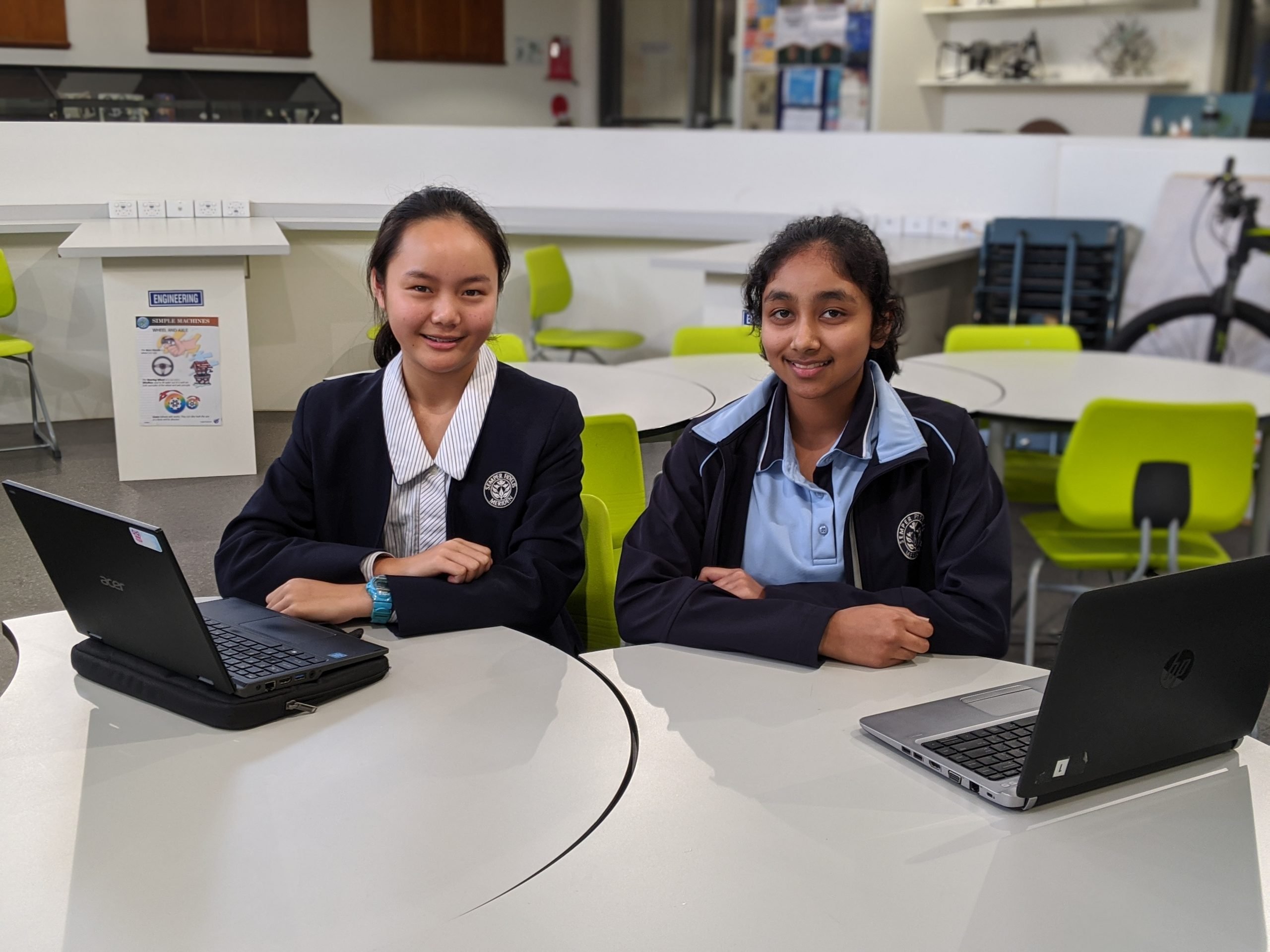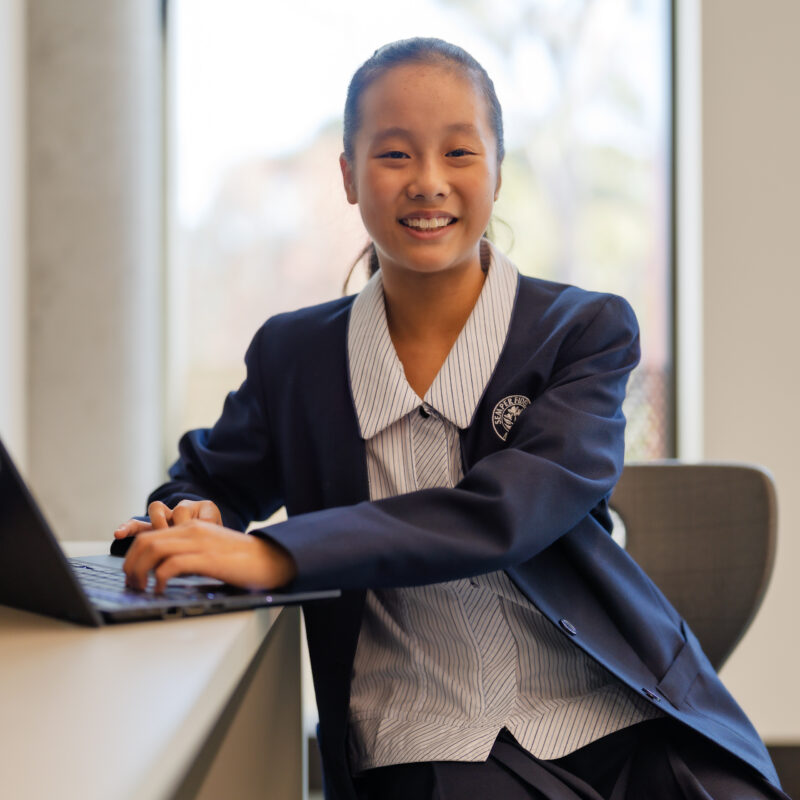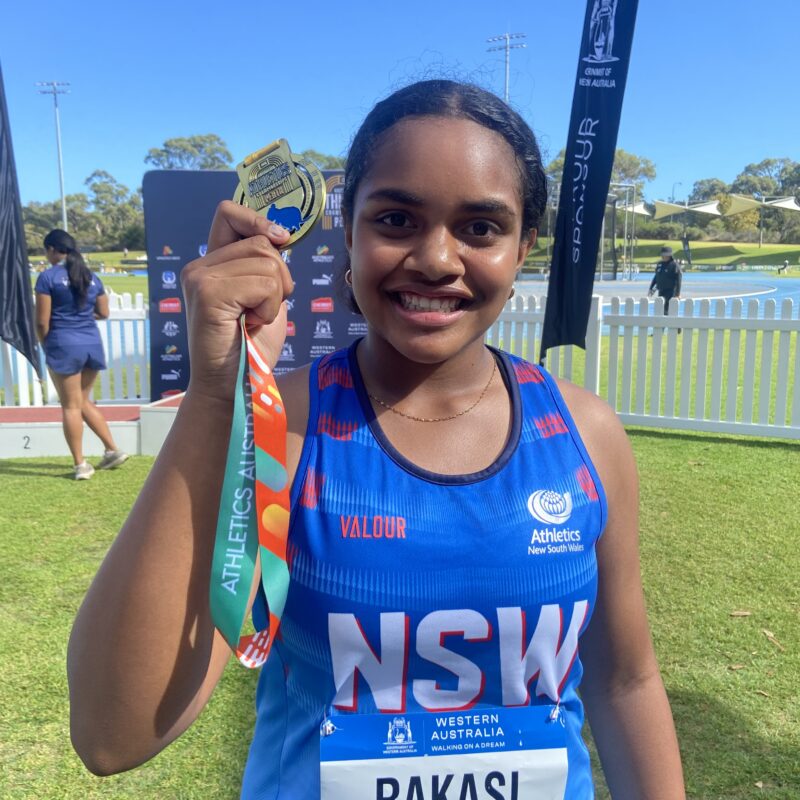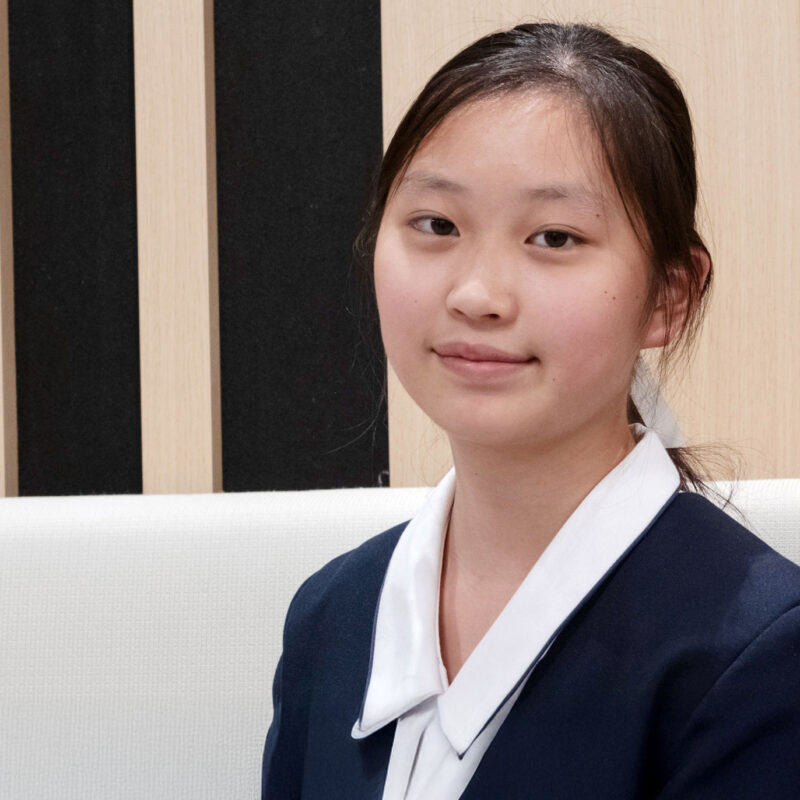Year 8 students, Abisha Thevarajah and Teresa Yang, have received perfect scores in the Bebras Australia Computational Thinking Challenge. The competition was undertaken by Meriden’s Year 8 cohort, along with their counterparts at schools across Australia. The girls were two of just twenty Years 7 and 8 students to achieve one hundred per cent and make the Bebras Australia 2020 Honour Roll.
The challenge is an interactive way to assess students’ critical, creative and computational thinking skills – all essential competencies for active learning at school and success in workplaces of the future. It consists of fifteen questions such as the one below, from last year’s paper.
Daniel received a chest of gold protected by an electronic lock. The lock can be opened by entering a nine-digit code.
Daniel has received the following hints about the code:
- The only digits in the code are 2, 6, 7 and 9.
- The digit with the highest value is used the lowest number of times in the code.
- The digit with the lowest value is used the highest number of times in the code.
- The code is the same backwards and forwards.
- All consecutive digits are different.
- The last digit is odd.
Using the information given above, determine the lock’s code.
Teresa said practical questions such as this engaged and motivated her because she enjoyed the challenge and the satisfaction of finding a solution.
“I especially liked that all the questions were based on real-life situations and that they involved logical, step-by-step thinking,” she said.
“My favourite question was the one I also found the most challenging. In it, three ‘green’ people and three ‘blue’ people needed to travel down a series of diagonal, intersecting roads to get to a set target. If a green person and a blue person were set to collide, the green person would go left, while the blue person would go right. If the two people were the same colour, they would continue onwards. We had to determine the point at which each person should begin in order to reach a particular destination. I spent a lot of time working on this question and, in fact, almost ran out of time checking my solution, so I’m really happy to have found the right answer in the end!”
Teresa is passionate about music and brought to the test the skills she has honed through her musical education, including patience and perseverance as well as experience in de-coding language.
“I spend time each day practising the violin because I love using music to express my ideas and emotions. I have been playing violin since I was five and I am working towards becoming a professional violinist,” she said.
Abisha said she enjoyed the Bebras Challenge because she liked applying different ways of thinking to different questions in order to work towards a solution.
“At school, I enjoy subjects that require reasoning, critical thinking and problem-solving and would like to pursue a career that involves these skills,” she said.
“Tests such as the Computational Thinking Challenge are important to students because they encourage us to apply the knowledge and skills we have developed at school and they give us opportunities to think about solving problems using ‘out of the box’ solutions. These skills are crucial to all aspects of life.”
The Meriden community congratulates Abisha and Teresa on their achievement.



